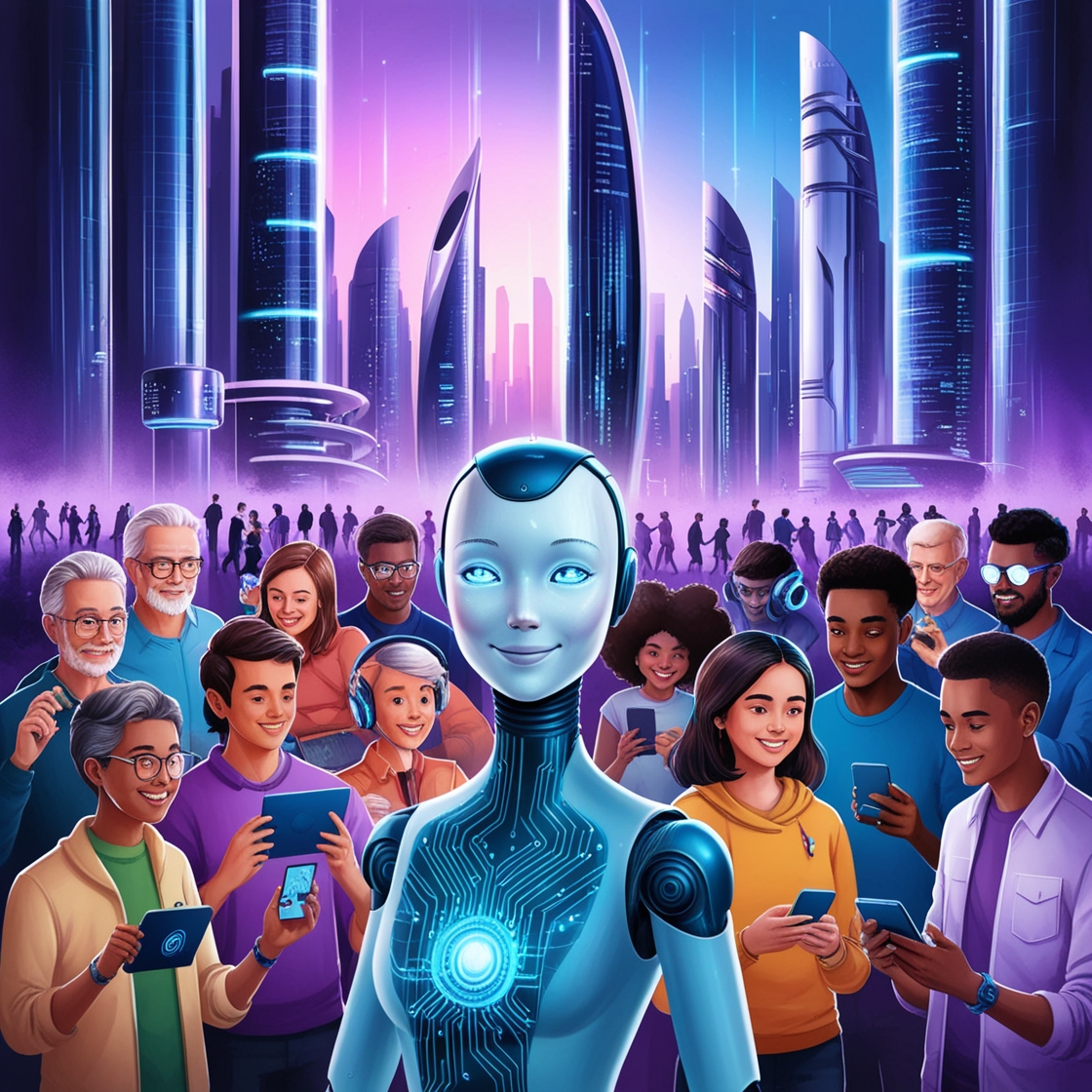Introduction
Artificial intelligence (AI) is no longer just a buzzword; it’s woven into the fabric of our everyday lives. From the moment we wake up to the sounds of our smart alarms to the time we unwind with our favorite streaming service recommendations, AI influences our routines in more ways than we might realize. Understanding AI’s role in our lives is crucial as it continues to shape our future. So, let’s dive into how AI is making a mark in various aspects of our daily existence!
What is Artificial Intelligence?
At its core, artificial intelligence refers to machines designed to perform tasks that typically require human intelligence. This includes processes like learning, reasoning, problem-solving, and even perception. AI has evolved significantly since its inception in the 1950s, transitioning from simple programmed responses to complex systems that can learn and adapt.
Types of AI
Narrow AI vs. General AI
Most of the AI we encounter today is classified as Narrow AI, which is designed to perform specific tasks. Think about the voice recognition software in your smartphone or the recommendation engines on your favorite shopping site. These systems are powerful within their scope but lack the broader understanding of General AI, which would have the ability to perform any intellectual task that a human can.
AI in Communication
Have you ever wondered how your social media feed knows what to show you? That’s AI at work! Algorithms analyze your behavior and preferences to curate content just for you. Moreover, chatbots powered by AI have revolutionized customer service, providing instant responses and support, making our interactions with companies smoother and more efficient.
AI in Home Automation
Imagine walking into your home and having the lights turn on automatically, or asking your voice assistant to play your favorite playlist. Smart home devices like Amazon Alexa and Google Home utilize AI to learn your habits and preferences, creating a more personalized and convenient living space. These systems can control everything from thermostats to security cameras, making our lives easier and safer.
AI in Healthcare
In the healthcare sector, AI is a game-changer. From assisting doctors in diagnosing diseases through data analysis to providing personalized health monitoring via wearable devices, AI enhances the quality of care we receive. Imagine an app that tracks your heart rate and sends alerts if it detects irregularities—this is not the future; it’s happening now!
AI in Transportation
When it comes to getting from point A to point B, AI is paving the way for safer and more efficient travel. Autonomous vehicles, such as those being developed by companies like Tesla, use AI to navigate and make decisions in real-time. Additionally, AI systems help manage traffic flow in cities, reducing congestion and improving safety.
AI in Education
Education is also undergoing a transformation thanks to AI. Personalized learning experiences allow students to progress at their own pace, making education more effective. AI tools assist teachers in creating tailored lesson plans and grading, freeing up their time to focus more on student engagement and interaction.
The Impact of AI on Work
The rise of AI brings both opportunities and challenges in the workplace. While some jobs may be automated, new roles are emerging that require human creativity and emotional intelligence. AI can also streamline recruitment processes, helping employers find the right candidates faster and more efficiently.
Ethical Considerations of AI
As we embrace AI, it’s essential to consider the ethical implications. Issues such as privacy and bias in algorithms raise questions about how we use these technologies. Are we compromising our personal data for convenience? And how can we ensure that AI systems treat everyone fairly?
The Future of AI
Looking ahead, the potential for AI is vast. Experts predict advancements in machine learning, natural language processing, and robotics that could fundamentally change our way of life. But with these advancements come societal changes that we must navigate carefully.
Conclusion
AI has undoubtedly woven itself into the tapestry of our daily lives, enhancing how we communicate, learn, and even manage our health. Embracing AI’s potential while addressing its challenges is crucial as we move into a future where these technologies will only become more integrated into our routines. Let’s not fear the change but embrace it, ensuring that we shape a future that benefits us all.
FAQs
What is the most common use of AI in everyday life?
AI is commonly used in voice assistants, social media algorithms, and customer service chatbots.
How does AI improve healthcare?
AI enhances healthcare through predictive analytics, diagnostics, and personalized health monitoring, leading to better patient outcomes.
Can AI be biased?
Yes, AI can exhibit bias based on the data it’s trained on, which is why it’s essential to address and mitigate these biases in development.
What are the risks associated with AI?
Risks include privacy concerns, job displacement, and the potential for misuse in surveillance or decision-making processes.
Will AI take away jobs?
While some jobs may be automated, AI will also create new roles, emphasizing the need for reskilling and adaptability in the workforce.
